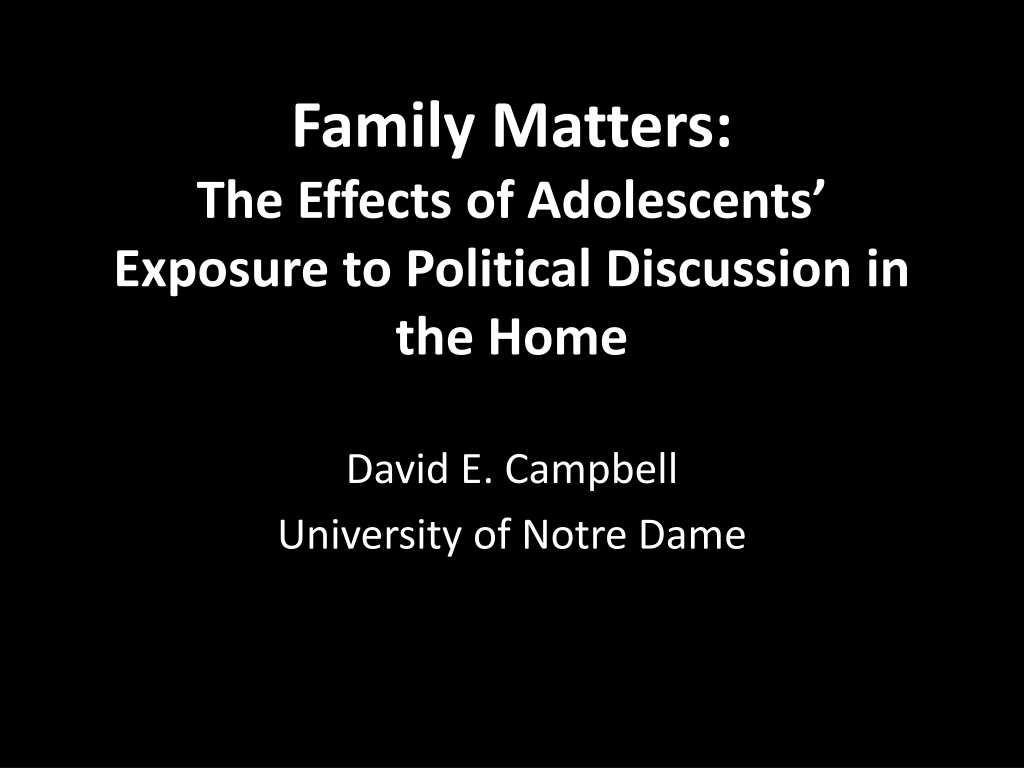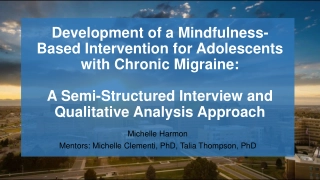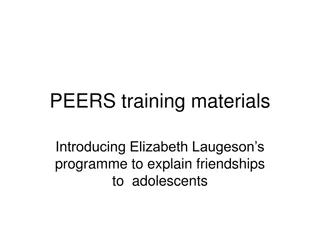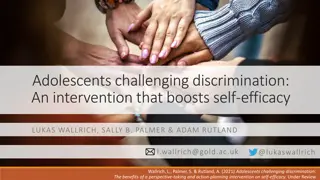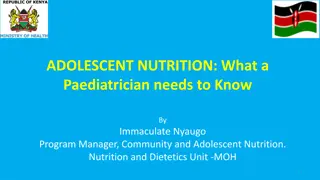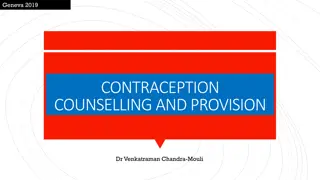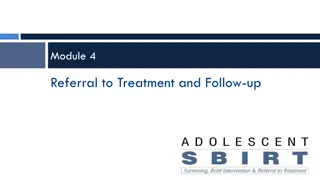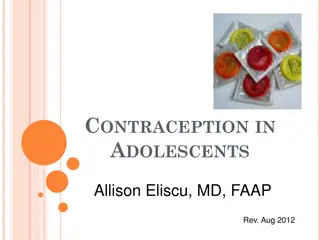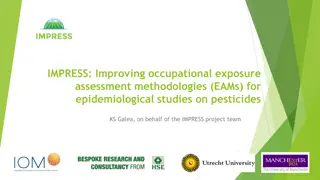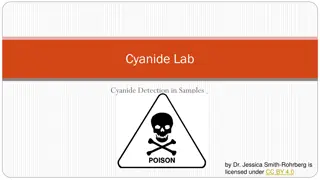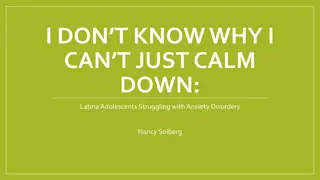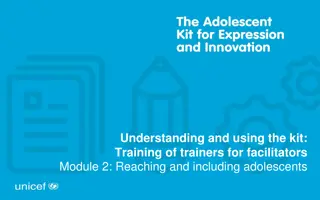Effects of Adolescents' Exposure to Political Discussion in the Home
This study by David E. Campbell explores how adolescents' exposure to political discussions within the family impacts their participation, efficacy, comfort with conflict, and deliberation. Conducted in the US with 2,500 parent-teen dyads, the survey examines the frequency of family deliberation and the level of disagreement between parents and adolescents on various key issues. The research delves into how differing ideas between parents and teens influence their relationship dynamics and political views.
Download Presentation

Please find below an Image/Link to download the presentation.
The content on the website is provided AS IS for your information and personal use only. It may not be sold, licensed, or shared on other websites without obtaining consent from the author. Download presentation by click this link. If you encounter any issues during the download, it is possible that the publisher has removed the file from their server.
E N D
Presentation Transcript
Family Matters: The Effects of Adolescents Exposure to Political Discussion in the Home David E. Campbell University of Notre Dame
Discussion: What you say Disagreement: What you think Deliberation: How you decide
Hypotheses Participation Efficacy Comfort with Conflict Deliberation
Hypotheses Participation Efficacy Comfort with Conflict Deliberation Disagreement
Hypotheses Participation Efficacy Comfort with Conflict Deliberation Disagreement Discussion
Hypotheses Participation Efficacy Comfort with Conflict Deliberation Disagreement Discussion Disagreement and Discussion
Data Family Matters survey Done in the US 2,500 parent-teen dyads Administered online by YouGov/Polimetrix Survey done in 2013-2014 Wave 2 just completed, waves 3-4 yet to come
Deliberation Index How often do your parents: Talk over important family decisions with you? Listen to your side of an argument? Let you have a say in making up rules that concern you? I feel free to disagree openly with my parents about political and social issues My parents encourage me to make up my own mind about political and social issues My parents respect my opinions and encourage me to express them My parents present several sides of an issue when explaining it Never/Rarely/Sometimes/Often
Disagreement Index How closely do your ideas agree with your parents ideas about: What values are important in life? Religion? Politics? Racial issues? What are appropriate roles for women? The role of gays and lesbians in society? Very similar/ Mostly similar/ Mostly different/ Very different/ Don t know
Disagreement Robustness Check Partisan Disagreement Parent and teen have different party ID
Discussion How often do you talk about social and political issues with your parents and family? Never Rarely Sometimes Often
Efficacy (individual) Thinking about the problems you see in your community, how much difference do you believe you can personally make in working to solve problems you see? A great deal of difference Some difference A little difference No difference at all
Efficacy (group) Thinking about the problems you see in your community, how much difference do you believe people working together as a group can make in working to solve problems you see? A great deal of difference Some difference A little difference No difference at all
Intention to vote Have you ever done or plan to do the following things? Vote in a public election I will certainly not do this I will probably not do this I will probably do this I will certainly do this I have already done this Don t know
Comfort with conflict When people argue about political issues, I feel uneasy and uncomfortable. Strongly agree Agree Neither agree or disagree Disagree Strongly disagree
Controls Parental measure of dependent variable Parental political participation Parental level of education Teen s age Teen s gender Parental expectation to teen s educational attainment All control variables set to means; 95% confidence bars
2.75 3.75 Individua l Efficacy Intention to Vote 2.25 3.25 10th percentile Deliberation Index 90th percentile 10th percentile Deliberation Index 90th percentile 3.5 3.25 3.25 Comfort with Conflict Group Efficacy 3 2.75 2.75 10th percentile Deliberation Index 90th percentile 10th percentile Deliberation Index 90th percentile
3 3.25 2.75 Individual Efficacy Group Efficacy 3 2.5 2.25 2.75 10th percentile Disagreement Index 90th percentile 10th percentile Disagreement Index 90th percentile 3.75 Intention to Vote 3.5 3.25 10th percentile Disagreement Index 90th percentile
3 3.25 Individual Efficacy Group Efficacy 2.5 3 2 2.75 Never Rarely Discussion Sometimes Often Never Rarely Discussion Sometimes Often 3.75 3.5 3.25 3.5 Intention to Vote Comfort with Conflict 3 3.25 2.75 3 2.5 Never Rarely Discussion Sometimes Often Never Rarely Discussion Sometimes Often
Disagreement and Discussion Hypothesis
4 3.75 3.5 Low Disagreement (10th percentile) Intention to Vote High Disagreement (90th percentile) 3.25 3 2.75 Never Often Discussion
3.75 3.5 3.25 Comfort with Conflict Low Disagreement (10th percentile) 3 High Disagreement (90th percentile) 2.75 2.5 2.25 Never Often Discussion
Robustness Check: Party identification
4 3.75 3.5 Matched Party ID Intention to Vote 3.25 Mismatched Party ID 3 2.75 Never Often Discussion
3.5 3.25 Comfort with Conflict Matched Party ID 3 Mismatched Party ID 2.75 2.5 Never Often Discussion
Summary Participation Efficacy Comfort with Conflict Deliberation Disagreement Discussion Disagreement and Discussion
Next Steps Explanations Wave 2: what happens when youth disagree with parents? Views change, appreciate different sides, strengthens views, more likely to agree or disagree with parents Home compared to school, friends, online Longitudinal analysis Waves 2-4
If you remember nothing else . . . Families matter!
